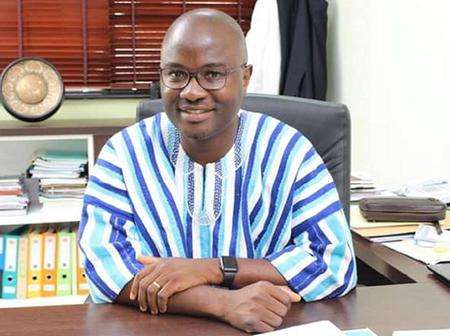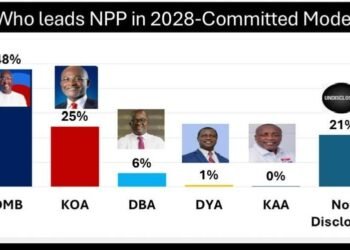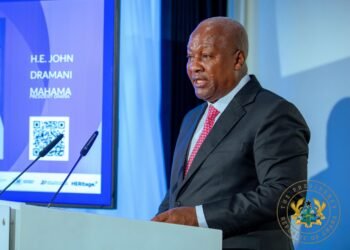Fuseini Issah, a former Member of Parliament (MP) from the Okaikwei North Constituency, has stated that the National Identification Authority (NIA) should link its data with that of the Public Sector Pay Roll, in order to eliminate all sorts of ghost names from the system.
The former MP asserted that by tying the two together, this would be a very excellent move for the state and the NIA. He said that if a public sector employee is not on the bill, it will be simple to ascertain from the NIA’s data whether or not they are still alive.
“Because if you are alive and active, your NIA card should show. And in fact, ultimately, what we are doing as a country is that at every point in time, your NIA card should be able to tell us who you are, what you are doing and everything else about yourself. So, for your qualification to get unto the public wage bill, I think that is a very-very good reference point. I think that those who haven’t yet registered on NIA should be encouraged to do that.
“But for the SIM registration exercise, I’m not too sure that a lot of people were motivated enough to go and take the NIA card. Thankfully, because we linked it to the SIM registration and because mobile phones become integral parts of our lives, people found it important or necessary for them to go and get the NIA card.”
Fuseini Issah
Also, he said it was highly distressing how people manage to get some names on the public sector pay roll bill, despite the fact that it passes through many structures.
He stressed that it was unfair for ghost names to receive salary when even daily workers like teachers and nurses occasionally have to wait around two years for their paychecks to show up in their bank accounts. He added that this was due to audit purposes, as the money had to go through several departments for approval before the final authorization was given.
According to Fuseini Issah, managing the public payroll has been a problem for the country for a long time and has become one of the problems that has affected all levels of government. Hence, the problem of an occasional appearance of “ghost names”.
“Not too long ago, there was an incident somewhere in Sunyani, where some people on the pay roll had actually caught something such that nonexistent people had been paid huge sums of money over time. And it is one of the leakages that we have to be able to pluck in our public financing system.”
Fuseini Issah
NIA Must Help Gov’t Save Money
As stated by Fuseini Issah, the NIA must assist the government in making financial savings through planning and budgeting so that, once it is linked to the public payroll, steps may be taken to ensure that the nation receives value for its money.
“In the bigger conversation, I have said that the issue with our public wage bill, we need to address it as a nation. And the reality is that, in our 2023 budget, the Gov’t set the upper ceiling for public sector wage earnings at 803,000. It is going to cost us about 37 billion Cedis. And the question is, are we getting value for money? The other one is that those who are actually employed, are they being productive enough to earn 37 billion from our wage bill?
“Remember that the NDC, before they left Gov’t, had this structure of budgeting where three line items; the public wage bill, our commitment to our debt and our transfers to statutory funds. This alone was more than our tax revenues. So, if we want to do anything significant, we would want to look elsewhere to bring in funds and this leads to us having to find other sources or be creative to grow the economy like we want to grow.”
Fuseini Issah
He claimed that despite efforts to break that pattern, the New Patriotic Party (NPP) still has the issue that the National Democratic Congress (NDC) left behind. He said that the NPP would need to work harder to break the cycle if it wanted to increase the economy.
READ ALSO: NPP Presidential Primaries: Failed Aspirants Thinking Of Whom To Support- Kwadwo Poku























